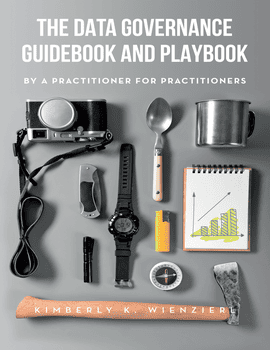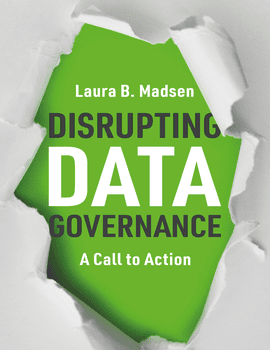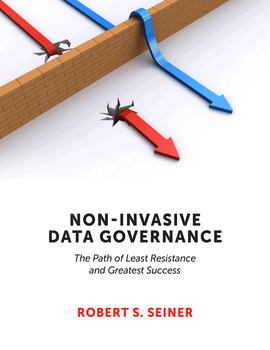Data Governance Needs Risk Management
Data Governance Needs Risk Management: Moving from Data-driven to Business-driven, by Mark Atkins and Terry Smith
Gain confidence in regulatory compliance, drive effective infotech investment, and uplift organizational knowledge for effective data governance.
Topics
Chapter 1: Knowledge
Research—The cost of project failures
The semantic gap
Closing the semantic gap
Ambiguity
Business glossaries versus data dictionaries
The structured definition
Sentence diagramming
Ontologies and knowledge graphs
Knowledge discovery and management
Chapter 2: Sociality
What is sociality?
Appreciating the importance and value of good information
Organizational change
Business-driven information management culture
3Rs—Roles, responsibilities, and rewards
Investing in education, not just technology
Leveraging definition workshop to build community
Chapter 3: Infotech
The need for systems thinking
Infotech evolution
Business-led information management
Data models
Data and information quality
Software development methodologies
Chapter 4: Resources
The cost of poor information resource management
Artifact management and the business encyclopedia
What to govern—data and information artifacts
Critical data elements and data catalogs
Business-driven, not data-driven
Resource accountability and responsibility
Information governance function—CFO, CRO, COO, or PMO
Beyond artifact management—content reuse
Based on the authors’ extensive experience and reinforced with case studies, this book presents their award-winning framework of business tools and techniques. It provides a 4-point strategy for achieving business-driven information governance aligned with business risk management to ensure the delivery of quality and reliable information.
Master a structured approach to sharing knowledge and defining business terms by removing ambiguous terminology from business communications. Raise awareness of cross-organizational misalignment and improve communication through a clearly defined business language. Use the knowledge capture technique to establish and strengthen responsibility for business information, and empower dynamic communities focused on resolving business concerns. Improve communication with data scientists and engineers on business needs, ensuring a higher return on infotech investment and reliable information in reports and dashboards. Expand business capability for business-side information governance over key information artifacts and related data.
The four-point strategy culminates in establishing a governed business encyclopedia of organizational knowledge, including a glossary of business terms and definitions, an open register for issues, and how these all relate with key artifacts, including dashboards, policies, operating procedures, and data sets.
Foreword by John Stanhope AM, Chairman of Port of Melbourne, Chairman of Bionics Institute, and Chancellor of Deakin University.
“All organisations, whether they are relatively new start-ups or century-old companies, face the seemingly daunting task of defining, organising and governing their business information. In this book, Terry and Mark share their significant experience of helping organisations solve real-world problems, repositioning business information from a problem to be solved to a competitive knowledge asset. The authors present a simple but effective approach and is a timely reminder that sometimes you need to slow down and spend time on the basics to ultimately go fast.”
Kate Koch, CFO, SEEK Australia
“This book cuts through the complex issues of information management with real-world experience and case studies. I highly recommend it.”
Thana Velummylum, ex CDO of Telstra
“The only Information Management book that has motivated me to keep reading. The authors have reflected on their long experience, developed sound practical techniques, and described them in a clear readable manner.”
Graham Witt, author of Data Modeling Essentials, Writing Effective Business Rules, Data Modeling for Quality, and Technical Writing for Quality
About Mark and Terry
Mark Atkins and Terry Smith are co-founders of Intraversed and co-creators of the Intralign definition standard. They have a combined experience of 60+ years in financial analytics, data and information governance, information quality, business process re-engineering, data modeling, and data warehousing and business intelligence, in many industries across the USA, UK, Australia, New Zealand, and South Africa. Their passion is providing education and support that gives their clients the skills and confidence to cut through complexity and get what they need to succeed.
Faculty may request complimentary digital desk copies
Please complete all fields.





